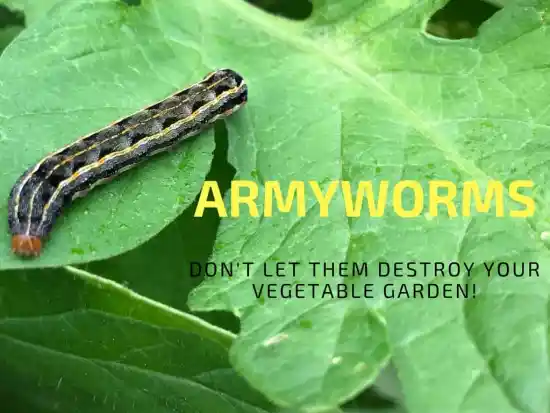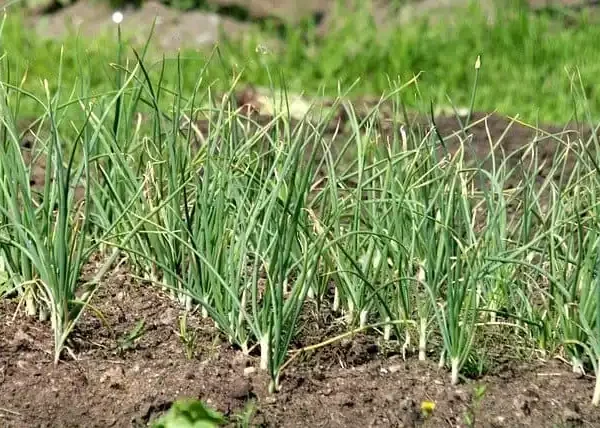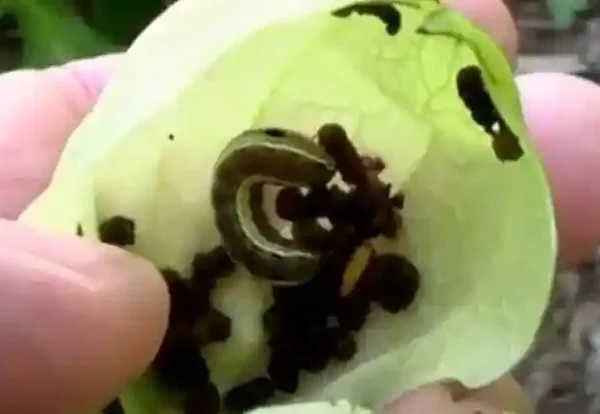Introduction
Armyworms, notorious pests known for their voracious appetite and destructive feeding habits, can wreak havoc on garden crops if left unchecked. This expert guide provides comprehensive strategies for identifying, preventing, and controlling armyworm infestations, drawing upon insights from government agencies, horticultural bodies, and academic experts.
Identifying Armyworms
Before implementing control measures, it’s crucial to accurately identify armyworms and distinguish them from other garden pests. Armyworm larvae are typically green, brown, or black caterpillars with distinct longitudinal stripes and an inverted “Y” pattern on their head capsule. They often feed in large groups, consuming foliage and leaving behind skeletonized leaves and defoliated plants.

Prevention Strategies
Crop Rotation
Rotate garden crops annually to disrupt armyworm breeding cycles and reduce the buildup of infestation-prone areas.
Plant Diversity
Cultivate a diverse range of plant species in your garden to minimize the risk of widespread armyworm damage. Interplanting with aromatic herbs or flowers that repel pests can also deter armyworms.
Healthy Soil
Maintain healthy soil fertility and structure through organic amendments and proper irrigation practices. Healthy plants are more resilient to pest infestations, including armyworm attacks.
Control Measures
Manual Removal
Handpick armyworm larvae from affected plants and dispose of them by drowning in soapy water or sealing them in a plastic bag for disposal. This method is effective for small-scale infestations.
Biological Control
Introduce natural predators such as parasitic wasps, ladybugs, and predatory beetles to your garden to help control armyworm populations. Bacillus thuringiensis (Bt) is a bacterial insecticide that specifically targets caterpillars like armyworms while minimizing harm to beneficial insects.
Botanical Insecticides
Certain botanical insecticides derived from plants such as neem oil, pyrethrum, and spinosad can be effective against armyworms while posing minimal risk to the environment and non-target organisms.
Cultural Practices
Implement cultural control measures such as tilling the soil to expose armyworm pupae to predation and removing crop debris after harvest to disrupt their lifecycle.
Monitoring and Integrated Pest Management (IPM)
Regular monitoring of garden crops for signs of armyworm activity is essential for early detection and prompt intervention. Integrated Pest Management (IPM) approaches, endorsed by organizations like the University of California Integrated Pest Management Program (UC IPM), advocate for a combination of preventive measures, biological controls, and targeted pesticide applications as part of a holistic pest management strategy.
Conclusion
Combatting armyworm infestations in the garden requires a multi-faceted approach that integrates preventive measures, cultural practices, biological controls, and selective pesticide applications. By adopting proactive strategies and staying vigilant, gardeners can effectively manage armyworm populations while promoting a healthy and thriving garden ecosystem.
What are armyworms, and why are they harmful to my garden?
Armyworms are caterpillars known for their destructive feeding habits, which can defoliate garden crops and cause significant damage. Identifying and controlling them is crucial for preserving the health and productivity of your garden.
How can I tell if my garden is infested with armyworms?
Look for signs such as skeletonized leaves, defoliated plants, and the presence of caterpillars on foliage. Armyworms often feed in groups and may be seen marching in a line, hence their name.
What preventive measures can I take to avoid armyworm infestations in my garden?
Employ strategies like crop rotation, plant diversity, and maintaining healthy soil to minimize the risk of armyworm outbreaks. These practices disrupt their lifecycle and create less favorable conditions for infestation.
Are there natural predators that can help control armyworm populations in my garden?
Yes, natural predators such as parasitic wasps, ladybugs, and predatory beetles can help keep armyworm populations in check. Encouraging biodiversity in your garden can attract these beneficial insects.
How do I manually remove armyworms from my garden?
Handpick armyworm larvae from affected plants and dispose of them by drowning in soapy water or sealing them in a plastic bag for disposal. This method is effective for small-scale infestations.
What are some botanical insecticides that can be used to combat armyworms?
Botanical insecticides derived from plants such as neem oil, pyrethrum, and spinosad can effectively control armyworms while posing minimal risk to the environment and non-target organisms.
Can I use chemical pesticides to eradicate armyworms from my garden?
While chemical pesticides can be effective against armyworms, they should be used as a last resort and applied judiciously to minimize harm to beneficial insects and the environment. Always follow label instructions and safety precautions.
How often should I monitor my garden for signs of armyworm activity?
Regular monitoring is essential, especially during peak armyworm seasons or when planting susceptible crops. Check plants for signs of damage and inspect foliage for the presence of armyworm larvae.
What is Integrated Pest Management (IPM), and how can it help control armyworms in my garden?
IPM is a holistic approach to pest management that combines preventive measures, cultural practices, biological controls, and targeted pesticide applications. Implementing IPM strategies can effectively manage armyworm populations while minimizing environmental impact.
Are there any organic or environmentally friendly methods for getting rid of armyworms in my garden?
Yes, organic methods such as biological control with natural predators, botanical insecticides, and cultural practices like tilling the soil can help control armyworms while promoting a healthy and sustainable garden ecosystem.
- Lip Filler London – Lip Augmentation & Natural Lip Enhancement - December 16, 2025
- Tennessee’s THC Beverage Market - June 5, 2025
- Top THC Infused Seltzers in Delaware - June 5, 2025




